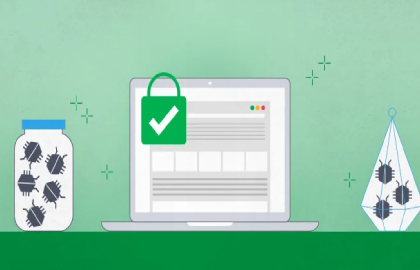Check Website Security and Protected Against Hackers
The World Wide Web is full of websites, and many sites are either fake, scam, or fraudulent. The Internet has evolved so much with time which provides you with many facilities. We bank, shop, communicate, and learn through the Internet. At the same time, this evolution has opened a new way to hackers, attackers, and cybercriminals. You should be well equipped with the knowledge of such a query as to how to tell if a website is safe.
These attackers and cyber criminal’s tactics tend to involve phishing. Phishing is a kind of online fraud that has been excellently manufactured by hackers to steal your data. This data can include your credit card details, addresses, passwords, etc.

In this post, we are sharing some simple and a few advanced ways to differentiate between a reputable website and a fraudulent one. You can act like a fake websites detector by knowing the answer to a query like how to know if a website is legit or not, Let’s Read on:
Check If a Website is Safe
1.Check Certificate Details
Sometimes, this method is used by professionals to detect the reputation of a website. In this method, you have to dive into your browser’s menu. You should have a proper understanding of SSL before practicing this method.
Some browsers allow you to view certificate details by clicking on the padlock. But in some browsers, you need to dig deeper to see the same. Follow the steps given below for different browsers.
Types of IT Support Services
For Chrome
- Click Three Dots to see the menu
- Select ‘Developer Tools’ under ‘More Tools’
- Click on the Security tabt
- Now, Click on ‘View Certificate’
For Firefox
- Click on Padlock icon available in the navigation bar
- Go to ‘More Information’
- Click ‘View Certificate’
For Safari
- Go to Padlock Icon
- Click ‘View Certificate’
Once you have the certificate details, you need to look at the ‘Subject.’ The subject is the company or website that the certificate is representing. Depending on the type of certificate (OV, DV, or EV), you will witness different amounts of information in the subject option.
A DV certificate will provide you the domain name only. An OV certificate comes with information about the company (name, state, and country). An Extended Validation certificate offers the most information about the website, such as the exact street address.
If you are going to pay by entering your credit or debit card details on a website, you need to check for the OV SSL certificate. This certificate acts as a baseline for e-commerce businesses, financial institutions, etc.
2.Check Trust Seals
Whenever an organization invests in its customer’s security, they ensure to take a little bit of credit for the same. It is the major reason behind the existence of trust seals. You may come across various trust seal on the Internet while making any transaction.
These trust seals are commonly placed on the homepage, login page, or checkout pages of a website. It seems like regular signs to you, but these seals are the sign of security on the specific site. You can also click on them to know more about their security.
Most SSL certificates come with trusted seals that will provide you with verified information when clicked on. It is essential to click on these seals to confirm the credibility of a website. It can also provide advanced information about malware scans and vulnerability assessments.
3.Signs of Website Malware
Sometimes, a website may have an SSL certificate, trusted seal, and privacy policies but can be infected by malware. Your data is not safe on such types of sites and can cause you massive damage. You can look for the signs mentioned below for these types of attacks:
- Malvertising
Some malicious ads are easy to identify by their spelling errors, unprofessional appearance, etc. They also come with false promises as they promote ‘miracle’ kinds of things and also feature products that don’t match your browsing history. You should be cautious while clicking on these types of ads. - Suspicious Pop-ups
You must be careful from the pop-ups which make outlandish claims. They try to lure in people to download the malware by seeing these false things. - SEO Spams
The appearance of unusual links on a website is a sure sign of SEO spam that wants to get your personal information. You need to be cautious while clicking on the same.
Conclusion
The Internet is a beautiful place where you can visit and explore innumerable activities like learning, shopping, etc. You must be careful and equipped with the knowledge of the type of frauds and how we can identify an illegitimate website.
© 2026 Comodo Security Solutions, Inc





